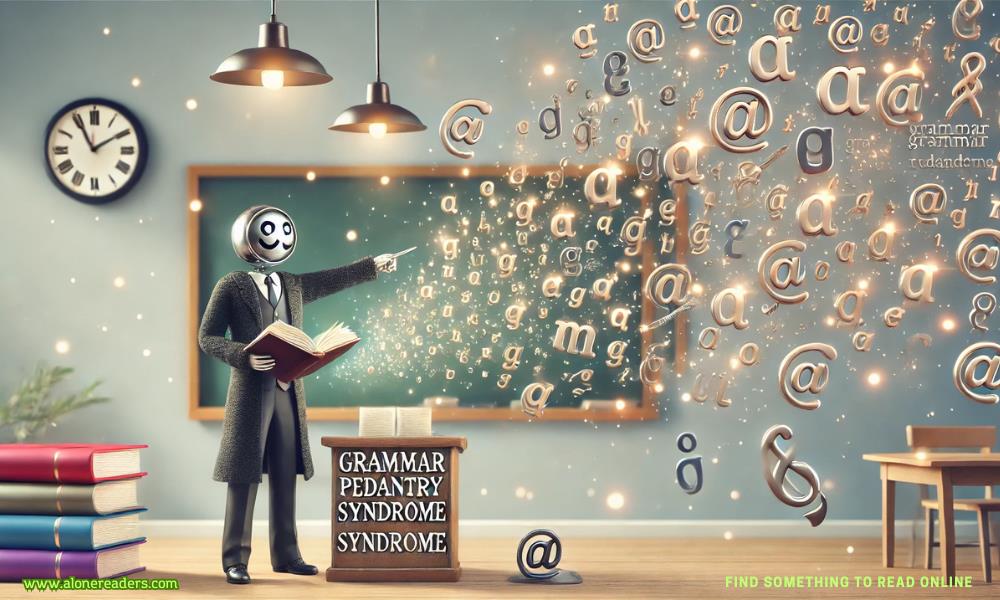
Language is a powerful tool that enables human connection, creativity, and expression. However, for some individuals, language becomes a battleground where every misplaced comma or incorrectly conjugated verb feels like a personal affront. These individuals, often described as grammar pedants, are compelled to correct others' linguistic errors, sometimes to the detriment of social harmony. Interestingly, this behavior has been linked to a phenomenon referred to as "Grammar Pedantry Syndrome," a term that underscores its compulsive and sometimes disruptive nature.
Grammar Pedantry Syndrome is not a recognized medical diagnosis but rather a colloquial term used to describe the behavior of people who exhibit an obsessive need to correct grammatical mistakes. While this habit may seem harmless or even helpful at times, it can often be perceived as overly critical or condescending, particularly in informal settings. Research suggests that this behavior may stem from psychological, social, and even neurological factors, making it more complex than mere fastidiousness about language.
One of the primary drivers of Grammar Pedantry Syndrome is the deep-seated belief in the importance of linguistic accuracy. For many grammar enthusiasts, proper language use is equated with intelligence, professionalism, or moral rectitude. They may view their corrections as a form of education, helping others to avoid embarrassment or to communicate more effectively. However, the reality is that most grammatical errors in casual conversations or online exchanges have little impact on the intended meaning. The compulsion to correct these errors can, therefore, seem out of proportion to their actual significance.
Psychologists have explored the personality traits associated with this behavior, and perfectionism often emerges as a key factor. Perfectionists are driven by a desire to adhere to high standards, and this extends to their expectations of others. Correcting grammar can provide a sense of control and order in an otherwise chaotic world. Additionally, individuals with strong prescriptive views on language may have a low tolerance for ambiguity, finding comfort in established rules and norms.
Social dynamics also play a significant role in Grammar Pedantry Syndrome. In some cases, correcting others' grammar can be a way of asserting intellectual superiority or gaining a sense of power in conversations. This behavior may be more pronounced in online interactions, where anonymity and the absence of non-verbal cues can reduce empathy and encourage confrontational exchanges. The internet, with its endless stream of text-based communication, has become a breeding ground for grammar correction, with some individuals even gaining a reputation as "grammar police" in online communities.
Neurological factors have also been suggested as a potential explanation for Grammar Pedantry Syndrome. Some studies indicate that people with obsessive-compulsive tendencies may be more likely to fixate on perceived errors, including those in language. For these individuals, correcting grammar may provide temporary relief from the discomfort caused by noticing mistakes, much like other compulsive behaviors aimed at reducing anxiety.
While the intent behind grammar correction is often positive, it can have unintended social consequences. Constant corrections can come across as judgmental or dismissive, damaging relationships and alienating others. In professional settings, this behavior may be interpreted as a lack of focus on the bigger picture, as excessive attention to detail can overshadow broader goals. In personal interactions, it can create unnecessary tension, especially if the corrections are unsolicited or delivered in a harsh manner.
Understanding the motivations behind Grammar Pedantry Syndrome can help foster empathy for those who exhibit this behavior. It is important to recognize that their actions often stem from a combination of personal values, cognitive tendencies, and emotional needs. At the same time, individuals prone to grammar correction might benefit from self-awareness and a more flexible approach to language. Recognizing that communication is about connection rather than perfection can help strike a balance between upholding linguistic standards and maintaining harmonious relationships.
Language is inherently fluid, evolving over time to reflect cultural changes and new modes of expression. While grammar rules provide a framework for clarity and precision, they are not absolutes. Embracing this perspective can reduce the anxiety or frustration that often accompanies encounters with grammatical errors. For those who feel compelled to correct others, focusing on the intent and context of the message rather than its technical flaws can lead to more constructive and meaningful interactions.
In conclusion, Grammar Pedantry Syndrome sheds light on the complex interplay between language, psychology, and social behavior. While the compulsion to correct grammar may sometimes be helpful, it is often more reflective of the corrector’s personality and worldview than of any actual linguistic necessity. By cultivating an understanding of the motivations and impacts of this behavior, both grammar enthusiasts and their peers can navigate the nuances of communication with greater patience and mutual respect. Ultimately, language is a tool for connection, and its true value lies in fostering understanding rather than enforcing perfection.